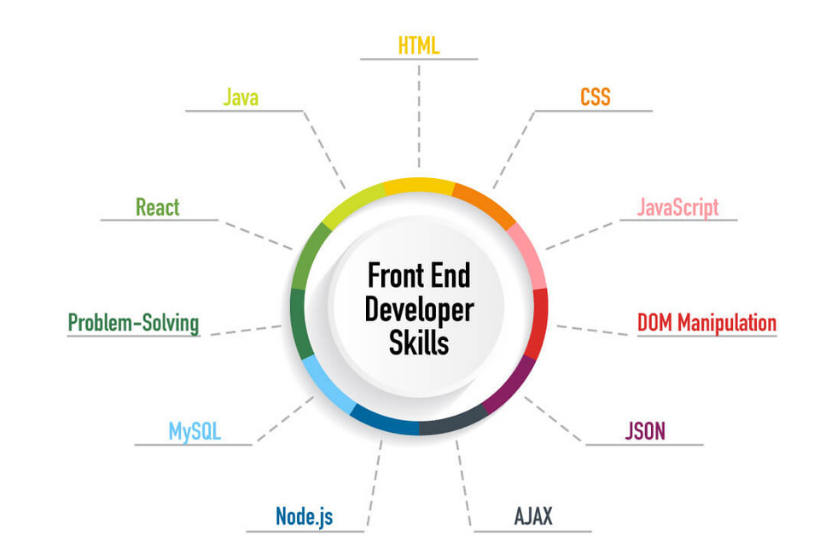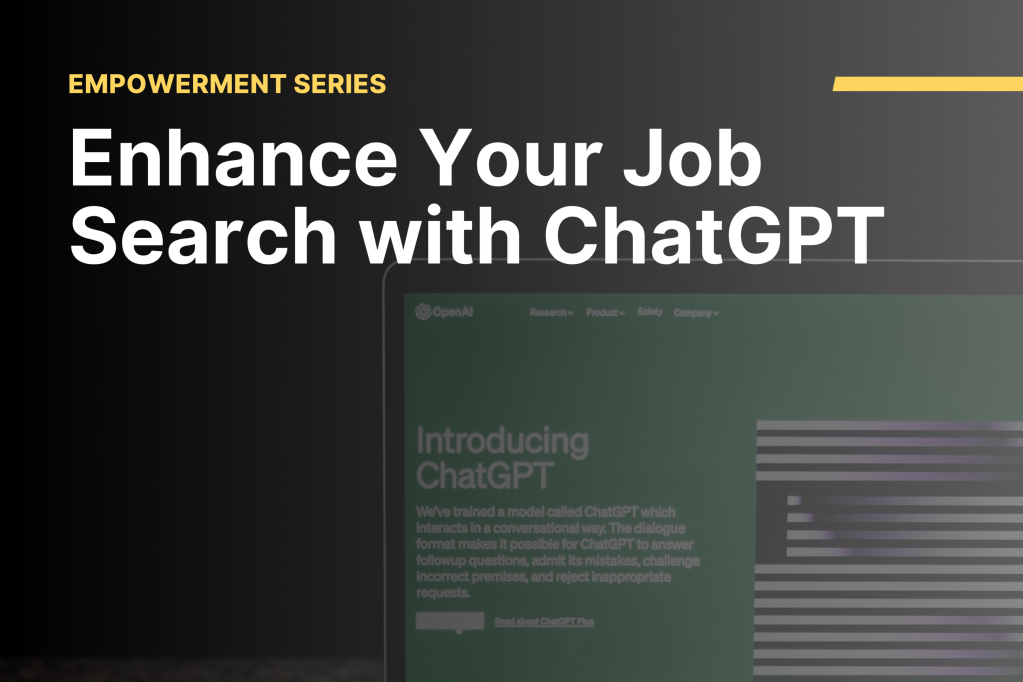
Networking allows you to raise your visibility by showcasing your strengths, values, and goals. Building relationships, however, doesn’t happen overnight. It takes time and consistent effort. But, it is worth it as the gains outweigh the work.
With a strong support network, you can create impactful connections, whether with your peers, industry professionals, mentors, or potential employers. By keeping in touch with your network, you build an online presence and can benefit from knowing the latest news regarding industry trends and reports.
This networking guide will help you build your network—one connection at a time.
Read straight through, or use the agenda below to jump between topics.
- What is networking?
- Why is networking important?
- How do I set myself up for success?
- How do I start networking?
What is networking?
Networking is:
- A chance to learn more about an industry and what employers are seeking.
- An opportunity to gain visibility and make new connections.
- A chance to describe your interests, skills, and values (which will help you in a real interview).
Networking is not:
- Asking for a job.
- An employment interview.
- A guarantee of employment or employability.
- Just a business card swap at a meeting or conference.
- A stockpile of connections on LinkedIn.
Types of networking
Networking varies greatly based on your goals and preferences for interacting with others. For example, some spend more time networking online, while others prefer in-person networking opportunities.
Online networking: This can happen through LinkedIn, virtual events, alumni networks, industry networks, professional associations, virtual mentorship platforms, or one-on-one virtual meetings. The number of ways you can network online is constantly growing and evolving. When networking online, ensure your profiles look polished on platforms like LinkedIn. Follow companies, thought leaders, and professionals in the industry on LinkedIn, Facebook, and other social media platforms. Engage with these companies and individuals through likes and comments on their posts. Look for alumni groups for current or past organizations and educational institutions.
In-person networking: This can happen through in-person events or happenstance conversations. In-person networking requires effort, but it allows you to feel like you belong and deserve to be heard. This helps you focus on sharing your knowledge and expertise rather than trying to prove yourself.
Why is networking important?
You can never underestimate the power of networking. The majority of people wouldn’t be where they are today without some form of it, according to Zippia. Here are a few data points:
- 85% of jobs are filled via networking with personal and professional connections.
- Up to 70% of employees received their current position through networking.
- 95% of professionals agree that face-to-face connections are key for successful long-term business relationships and 79% agree that networking plays a vital role in their career progression.
With a positive correlation between networking and making your next career move, proactive outreach is critical when it comes to making meaningful connections.
How do I set myself up for success?
It is important that people in your network understand your skills, professional interests, and career goals. Equipped with this knowledge, people can connect you with job opportunities, resources, and other networking opportunities.
We recommend planning a short summary about yourself that you can share with others. Some people call this an “elevator pitch” because your summary should be concise enough to be told in the amount of time that one waits in an elevator. Your elevator pitch should include:
- Your relevant professional experiences, education, and skills
- Your interest and passion for a specific industry, career path, product, or community
- Your current career pursuits
Expert advice
“When networking or reaching out for informational interviews, remember to keep the ask such that it’s easier for the other person to say ‘yes.’ For example, requesting 10-15 minutes of time versus 30 minutes. If the conversation goes over more than 10-15 minutes, that’s okay, but keep the ask small to start with. This increases the chances of a positive response.”
– Ritu A., career expert at edX

How do I start networking?
You may have more people in your network than you realize. Use the categories below to help you think about who’s in your network and how you might reach out to them:
- Family
- Friends, sports teammates
- Former colleagues or supervisors
- Professors, academic cohort
- Volunteer or other connections, etc.
Consider the following approaches to expand your network:
- Reach out to every person on your networking list above and send them your materials with a specific ask. “Asks” can include a quick chat on the phone for advice or a lunch date to talk about your target industry, as well as recommendations for who you should connect with next.
- Ask your boss for projects that require you to interact with new departments or individuals if you’re currently employed. For example, you can propose helping the company enhance its website. In doing so, you’ll interact with developers and/or the marketing department.
- Find volunteer opportunities. Get involved in an organization or group that interests you, and offer to contribute some of your new skills. You may meet people who can be helpful.
- Create business cards with your target role, links to online profiles such as LinkedIn, and a QR code to scan for your resume or CV.
- Use LinkedIn weekly to connect with employees and decision-makers. Look for secondary connections. Send personal messages about your passions and common interests, and request informational interviews.
It’s always helpful to set a goal when attending networking events (e.g., “I will have three meaningful conversations that may lead to potential follow-up,” or “I will not leave until I have entered into at least five conversations.”) Establishing a goal allows you to set a measurable standard of success for an event, which can help change your experience of networking into a positive one.
Pro tip:
Always bring business cards (e-business cards or physical) to events. On the back of the cards you receive, take notes about the people you speak with so that you can follow up.
Tips for in-person events:
- Master the use of tech language: The better your vocabulary (especially related to your industry), the more impressed people will be. Being confident, articulate, and knowledgeable will help create a strong first impression.
- Maintain eye contact: Always maintain eye contact when you’re speaking with someone. It’s okay to look away now and then. The key is showing interest by staying engaged; eye contact is a great way to show that you are interested and paying attention to the conversation. And remember to smile!
- Leave personal space: Don’t stand too close. Keep a reasonable distance.
- Acknowledge your understanding: When someone else is talking, acknowledge that you hear them with non-verbal body language such as nodding.
- Wait your turn: Successful professionals are also good listeners. Give people a chance to complete their thoughts before offering a response.
- Watch body language: Mirror the body language of the person you’re speaking with. If they sit down, you should sit down too—they may be ready for a longer conversation. Try not to cross or fold your arms; that may make you seem guarded. Overall, be mindful of body language.
- Be curious: Open the conversation with questions. Focus on the other person first and convey genuine interest.
Tips for virtual events:
- Get ready before the event: Ensure you’re ready a few minutes before the event starts. Check your webcam, put your phone on silent, turn off computer notifications, and grab something to drink. Have either a pen and paper or a Word document open so that you can take notes.
- Prepare an introduction: At smaller virtual networking events, there may be a round-robin style of introductions where everyone says a little about themselves in the main room. Keep your introduction short yet informative. Say your first and last name plus a sentence or two about what you do or your goal for attending the event.
- Participate in the discussions: Be an active participant and engage in discussions in the chat. This will help you get to know some of the other attendees and start making connections. It’s also important to keep your camera on during the event because it keeps you accountable to stay engaged, and it can help you stand out if many other people have their cameras off.
Networking is only effective if you follow up. So, after meeting new connections, follow up with a personal message.
When reaching out, whether via email or phone, here are a few tips:
- Remind them how they know you: Always reference a common person, event, educational or work experience, organization, or award that creates a common bond.
- Be clear on what you bring to the table: Express interest in the person’s work, and express how you can add value rather than asking for something. Sharing interesting articles, making introductions to helpful contacts, supporting the contact’s endeavors, and engaging with their LinkedIn posts are great ways to add value.
- Be flexible with scheduling: Make it easy and convenient for the contact to say yes to connecting again!
- Do your homework: Research your new connections to help you better foster a genuine relationship. LinkedIn and general internet searches can provide access to information on your connections.
- Don’t give up, and don’t take it personally: Some people hesitate to reach out again for fear of being ignored, rejected, or seeming like a pest. It’s okay if someone doesn’t take you up on your offer. You’ll get more accepted invitations than passes if you reach out regularly.
- Breathe, and stay calm: It’s perfectly normal to be nervous about calling people. Networking is a skill that requires practice. It may help to practice calls with friends or family. It may also help to remember that you’re not calling to ask for favors—you are asking to learn from someone. Most people love sharing their expertise!
Expert advice
“When following up with people after a networking event or when you’re reaching out to request an informational interview, use your technology wisely. Instead of emailing back and forth about dates and times, set up a Calendly profile that includes your availability. This will allow the other person to schedule a meeting that you both agree on without hassle.”
– Tramaine I., career expert at edX

Networking conversations can vary in type, but informational interviews are very effective. Informational interviews are an opportunity to have an in-depth conversation with an industry professional while exploring your goals. They’re also great ways to expand your network.
Before the informational interview
Do:
- Research the individual: use LinkedIn, Google, or personal connections to prepare.
- Prepare a list of questions (at least four).
- Review a list of conversation starters for informational interviews, and have a few ready to go.
- Prepare your elevator pitch and visit our Elevator Pitch Guide for support.
Do not:
- Plan to “wing it,” while these are not job interviews, preparation is needed.
- Script every second of the interview; you also need to build an organic relationship.
- Assume the other person will lead the conversation or listen to you talk the entire time.
During the informational interview
Do:
- Smile, make appropriate eye contact, and lean forward.
- Ask questions to demonstrate interest and active listening.
- Find a personal connection through interests, passions, or hobbies.
- Listen for ways you may be able to help or volunteer.
- Use varied tones and volumes to demonstrate your passion and enthusiasm.
- Describe work you’ve done that relates.
Do not:
- Complain about previous employers or peers.
- Dominate conversation.
- Answer questions with one-word answers—be concise, but be thorough.
- Look at your phone during the conversation.
After the informational interview
Do:
- Jot down notes to remember the conversation.
- Write a thank-you email.
- Follow up about once a month with updates.
Do not:
- Follow up too frequently (more than about once per month).
- Text a thank you—this should be more formal.
Pro tip:
Informational interviews can lead to more interviews, new leads, volunteer or open-source projects, or ideas about new directions.
Additional resources
Now that you know how to effectively network (in person and virtually), perhaps you are wondering what to say or how to structure your outreach messages. Visit our Networking outreach samples for an idea of what to say in those messages.









